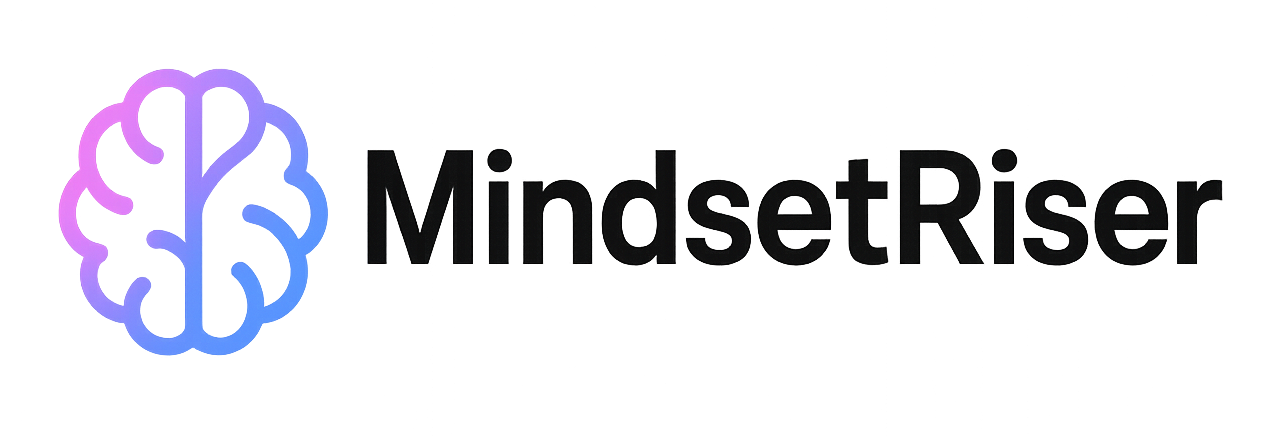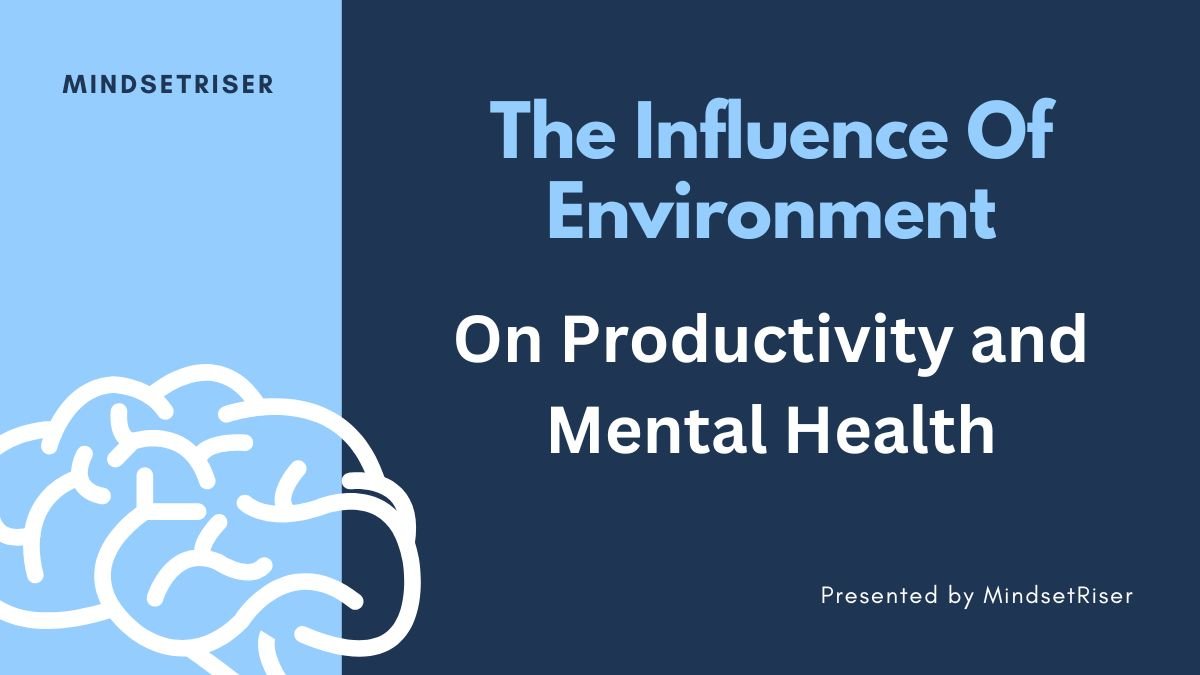The Influence of Environment on Productivity and Mental Health
Your environment significantly influences both your productivity and mental health. From the physical space around you to the social interactions you experience, your surroundings have the power to shape how you feel, think, and perform. A well-designed, positive environment can boost your energy, focus, and creativity, while a chaotic or unhealthy environment can lead to stress, burnout, and decreased performance.
In this article, we will explore the profound connection between your environment, mental health, and productivity. We’ll also provide actionable strategies to optimize your surroundings for better well-being and work performance.
The Connection Between Environment and Mental Health
The physical environment plays a crucial role in mental well-being. Research shows that elements like clutter, lighting, and noise directly affect how we feel and think. A disorganized, chaotic space can create feelings of stress and overwhelm, while a clean and organized environment fosters a sense of calm and control.
Impact of Lighting and Noise
Proper lighting can boost mood and cognitive function, while harsh or dim lighting can contribute to fatigue and irritability. Natural light has been shown to improve focus and reduce stress, making it ideal for workspaces or homes. Similarly, noise levels—whether it’s a noisy office or silence—impact our mental state. Some people thrive in quiet, while others work better in a vibrant, dynamic environment. Identifying what works best for you is key.
The Power of Green Spaces and Art
Nature has an incredibly calming effect on the mind. Research suggests that exposure to greenery, whether in the form of houseplants or access to outdoor green spaces, can reduce anxiety and improve cognitive function. Additionally, incorporating art or aesthetically pleasing visuals into your environment can have a positive impact on your emotional state, reducing stress and enhancing creativity.
The Impact of Work Environment on Productivity
The physical workspace is one of the most influential factors in work productivity. The right environment fosters focus, creativity, and overall work output. Whether you work in an office, a remote setting, or a hybrid space, the way your environment is structured directly impacts your performance.
Office Layout and Organization
An organized workspace promotes efficiency and clarity. A clutter-free desk, clear organization of files, and a system for managing tasks reduce mental clutter, helping you focus on the task at hand. On the other hand, a chaotic desk or office environment can lead to distractions, frustration, and decreased productivity.
Open Offices vs. Private Offices
Research shows that the type of office layout also influences productivity. Open office layouts, although fostering collaboration, can increase distractions and stress. Private offices or quiet workspaces, on the other hand, offer a space for deep focus and creativity. For remote workers, creating a dedicated home office space free from distractions is essential for maximizing productivity.
Social Environment and Mental Health
The social environment—the relationships we have with colleagues, friends, and family—plays a critical role in both mental health and work performance. Positive interactions with others can boost mood, enhance motivation, and improve well-being, while toxic relationships can contribute to stress and anxiety.
Building a Supportive Network
A supportive work culture and strong relationships with coworkers foster a sense of belonging and emotional safety. Positive feedback, collaboration, and shared goals can create an environment where everyone thrives. On the other hand, toxic environments—characterized by conflict, competition, or lack of support—can harm mental health and reduce productivity.
Importance of Social Connections
Maintaining meaningful social connections outside of work, such as with friends or family, can offer a much-needed emotional support system. These relationships help to buffer stress and improve mental well-being, contributing to greater work satisfaction and performance.
Strategies to Optimize Your Environment for Better Productivity and Mental Health
To enhance your mental health and productivity, it’s important to optimize both your physical and social environments. Here are practical tips you can implement:
1. Declutter Your Space
Keep your workspace tidy and organized. A clean environment reduces stress and distractions, allowing you to focus better on tasks at hand. Organize your desk, files, and materials so you can easily access what you need.
2. Incorporate Natural Elements
Add plants, greenery, or natural light to your space. This connection to nature can help reduce anxiety, improve focus, and create a more peaceful atmosphere. If possible, spend time outdoors to refresh and reset.
3. Optimize Lighting
Ensure your workspace has adequate lighting. Use natural light whenever possible, and incorporate warm-toned artificial lights if needed. Avoid harsh overhead lights, which can cause eye strain and fatigue.
4. Create a Dedicated Workspace
If you work from home, create a designated work area away from distractions. A separate workspace helps you mentally differentiate between work and relaxation, improving focus and minimizing stress.
5. Foster Positive Social Interactions
Cultivate supportive relationships at work and in your personal life. Engage in meaningful conversations, seek feedback, and collaborate with others. At work, create a culture of open communication and encouragement to foster a positive social environment.
6. Take Regular Breaks
Regular breaks improve mental health and productivity. Take time to rest, go for a walk, or practice mindfulness to recharge during your workday. This prevents burnout and keeps you mentally sharp.
The Role of Technology in Shaping Environment
In today’s digital age, technology plays a significant role in shaping both productivity and mental well-being. The right tools can enhance organization, reduce stress, and improve efficiency, while excessive screen time and digital distractions can negatively impact focus and well-being.
Productivity Tools
Use digital tools to stay organized and manage your tasks effectively. Apps like Trello, Asana, or Notion can help you structure your workday and reduce mental clutter. Time-management apps like Focus@Will can help maintain focus, while mindfulness apps like Headspace can support mental health.
Managing Screen Time
While technology enhances productivity, it’s important to monitor your screen time. Prolonged exposure to screens can lead to eye strain, anxiety, and reduced productivity. Incorporating regular breaks and limiting screen time during non-work hours is crucial for mental well-being.
Conclusion
Your environment—both physical and social—has a significant impact on your productivity and mental health. Creating a space that supports your well-being is essential for achieving success and maintaining balance. By decluttering, optimizing lighting, fostering positive relationships, and using technology wisely, you can create an environment that promotes both productivity and mental health.
Start assessing your own environment today, and make adjustments that will help you thrive.

